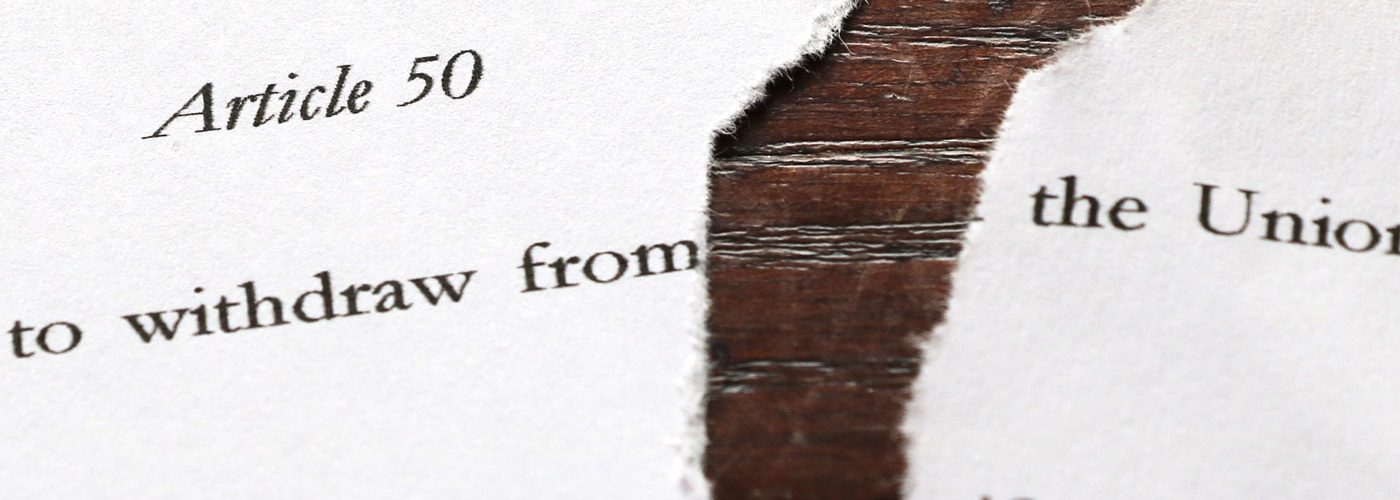If we do stay in the EU for an extended period, it will be because of voluntary decisions by the PM.
Two things are being said by the media about the Cooper-Letwin Bill, which has now become the European Union (Withdrawal) Act 2019 [PDF]. First that it has “ruled out” no-deal; and secondly that this Act has been imposed on an unwilling government by a Remainer-dominated Parliament.
Neither of these things are true. The Act required the government to lay a motion in the Commons specifying a date to which an Article 50 extension should be sought. The government laid that motion on Tuesday 9 April with the extension date of 30 June and the motion was passed with that date unchanged. (Note that only a minority of Conservative MPs voted for the motion despite being whipped to do so, with the majority of the Parliamentary Conservative Party voting against or abstaining: see Jonathan Isaby’s analysis of the votes).
That motion having been passed, the Act merely obliges the Prime Minister to do what she wanted to do anyway. In fact she has already done it in her letter to Tusk last Friday 5 April, which asked for an Article 50 extension until 30 June.
No further duty is imposed on the Prime Minister
Having asked for that extension, the new Act imposes no further duty on her. In particular, it imposes no duty on her whatsoever to agree on behalf of the United Kingdom to an extension to a different date. Or to an extension which is subject to conditions, if that is what the European Council offers her today in their alarm at the thought of what a less servile replacement Prime Minister could do with the UK’s vote and veto during an extension period.
So, she has it in her power to walk away from the table in Brussels this evening, and thereby fulfill the pledges to deliver Brexit she gave to her Party when she stood to be leader, and her pledges to the country in her 2017 General Election manifesto. If she does this, we will automatically leave the European Union at 11pm on this Friday 12 April and will regain immediately full control of our laws, borders and money. We will take back full control of our affairs, without the need for the permission of the European Union.
Will she do this? Regrettably her recent behaviour – particularly claiming to have “no choice” but to enter into talks with Labour – indicates that her numerous past protestations that “no deal is better than a bad deal” were insincere and uttered with no intention of following through on them.
Claiming she is being forced to do what she wants to do anyway
The progress of the Cooper-Letwin Bill illustrates a further aspect of the Prime Minister’s conduct, which is to claim that she is being forced by others to do things which she wants to do anyway. The government at first formally opposed the Bill on sound constitutional grounds. However, it emerged from the amendments they tabled that their real concern was not to stop the Bill, but to correct some of its inept drafting that could have accidentally stopped the government from agreeing to an Article 50 extension which it wants to agree to.
The government put forward one amendment in the Commons which was rejected, to say that the government could still agree an Article 50 extension outside the framework of the Bill under the prerogative. However that amendment in modified form (hey, presto!) re-emerged under the name of Lord Pannick in the House of Lords, and is now subs.1(6)-(7) of the Act.
The government put forward another amendment in the Commons, which is now section 2 of the Act. This was inexplicably declared carried by the Speaker without a division. It weakens Parliamentary control over changing “exit day” in the 2018 Withdrawal Act by changing the procedure from affirmative resolution of each House to negative resolution.
The government did a deal with the opposition to allow the Bill to be timetabled through the House of Lords and brought back to the Commons on Monday. Then, in an exception to normal practice, the Bill was rushed to the Queen for Royal Assent late that same night.
There should be no doubt that the government’s resistance to this Bill became a game of charades, and they wanted to facilitate its passage into law once it had been suitably amended to remove the unintentional obstacles to an extension caused by incompetent Letwin drafting.
The Act now imposes no legal duty on the PM to agree an extension with the EU
But the Bill in its final enacted form has been shorn of some additional sub-clauses that would have required the Prime Minister to return to the Commons for instructions if the European Council offers her a different date from that asked for. She is under no obligation in law to accept a different date from 30 June, or even to accept that date if the EU imposes conditions. If she declines to accept a revised date or accept conditions, there is no way in which the Remainers in the House of Commons could repeat their trick by 11.00pm on Friday — so we would just leave.
So if we do stay in the EU for an extended period, that will be the result of the voluntary act and decision of the Prime Minister, not forced upon her, for which she should be held fully accountable.








